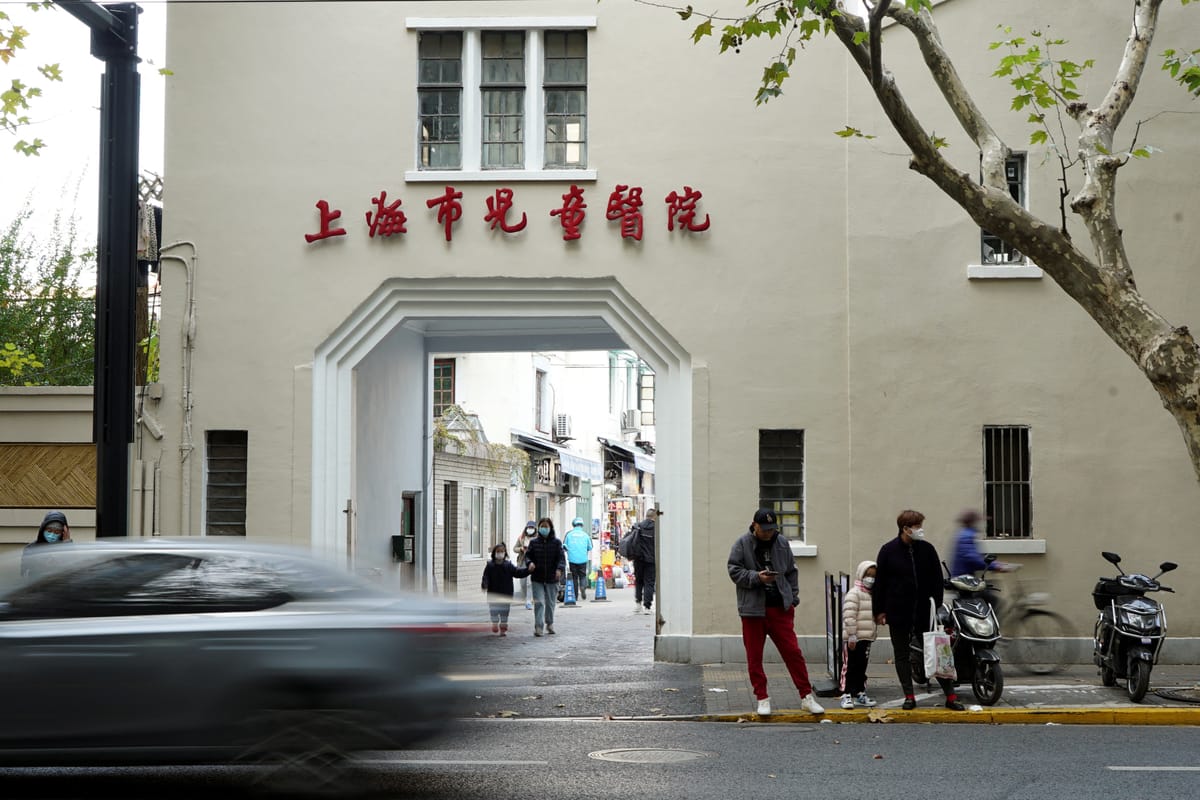China's pneumonia outbreak – here’s what you need to know
China has recently seen a surge in pneumonia cases, especially affecting children.

A few minutes every morning is all you need.
Stay up to date on the world's Headlines and Human Stories. It's fun, it's factual, it's fluff-free.
The backstory: China has recently seen a surge in pneumonia cases, especially affecting children. Recent reports highlight clusters of undiagnosed pneumonia cases in kids. This gained international attention when the country’s National Health Commission noted a significant increase in respiratory diseases earlier this month.
Last Wednesday, the World Health Organization (WHO) asked China for more info on these increased pneumonia cases. Concerns were swirling because of media reports hinting at potentially new pathogens and overwhelmed hospitals – reminiscent of the early COVID days.
More recently: The WHO requested that China share a full report within 24 hours covering how the flu-like illness is spreading, clinical aspects and lab findings. Then, mycoplasma pneumoniae was identified as the culprit – a bacteria causing cold-like infections but potentially leading to pneumonia, especially in kids with developing immune systems. China's National Health Commission quickly reassured the public that everything was under control via the Xinhua news agency, highlighting the nation’s effective management of children's respiratory issues.
Chinese health officials also pointed out last week that the country was seeing a seasonal increase in other respiratory diseases, like the flu, respiratory syncytial virus (RSV) and coronavirus, most likely because its longstanding COVID restrictions had been lifted.
The development: Last week, the WHO confirmed that China hadn't found any unknown pathogens or unusual causes for this recent spike in respiratory illnesses. It highlighted that, although some of these began spreading around earlier in the season than usual, it was understandable because of the easing of COVID restrictions, which had kept the pathogens at bay for quite some time. Other countries have seen similar illness surges when they lifted COVID restrictions, like Australia, New Zealand and the US.
The WHO assured that the situation was being monitored and it was in constant communication with Chinese health authorities. It also said there was no evidence of any danger of a global outbreak and advised against putting any travel restrictions in place. The organization also said that the increased cases didn’t seem to be overwhelming hospitals, as the media had previously suggested.
Meanwhile, authorities suggested practical steps for the Chinese public to prevent getting sick or spreading illness, like vaccination, social distancing, staying home when unwell, regular testing, proper mask use, ensuring good ventilation and practicing regular hand hygiene.
Key comments:
"Some of these increases are earlier in the season than historically experienced, but not unexpected given the lifting of Covid-19 restrictions, as similarly experienced in other countries," said the WHO in the statement.
The WHO said it is "closely monitoring the situation and is in close contact with national authorities in China."
“Efforts should be made to increase the opening of relevant clinics and treatment areas, extend service hours and increase the supply of medicines,” said China’s health ministry spokesman Mi Feng.
"China is likely experiencing a major wave of childhood respiratory infections now as this is the first winter after their lengthy lockdown, which must have drastically reduced the circulation of respiratory bugs, and hence decreased immunity to endemic bugs," said Professor Francois Balloux of the University College of London Genetics Institute to the BBC.
“Most people are rather sensitive to pneumonia and epidemic infections after Covid,” said Zhang Li, a doctor in the city of Dalian, in China’s northeastern Liaoning province, whose 14-year-old daughter recently recovered from mycoplasma pneumonia. “Parents might get anxious if their children don’t get better after one or two days.”




Comments ()